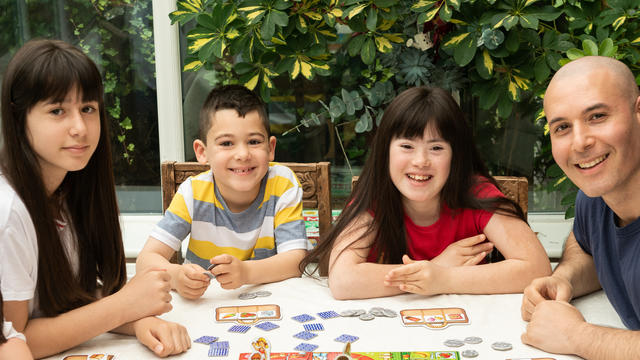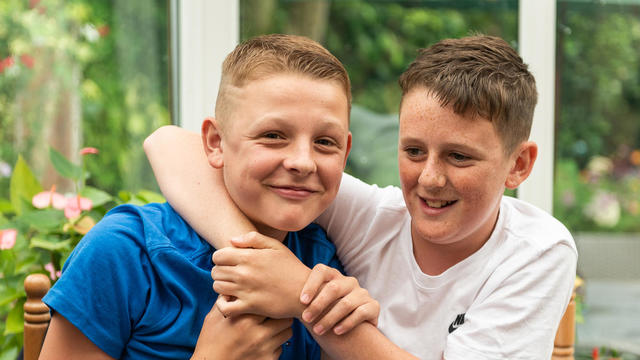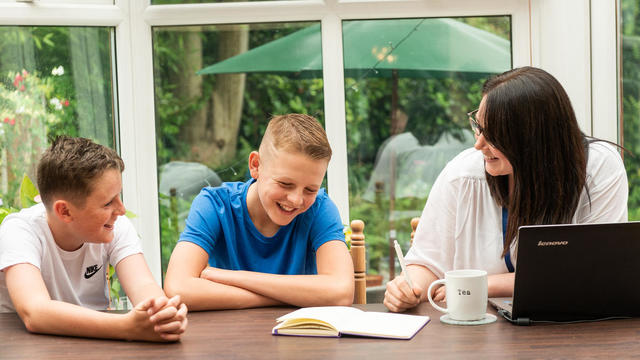Illegal and Unsafe: Why we must end the use of unregistered homes for children in care
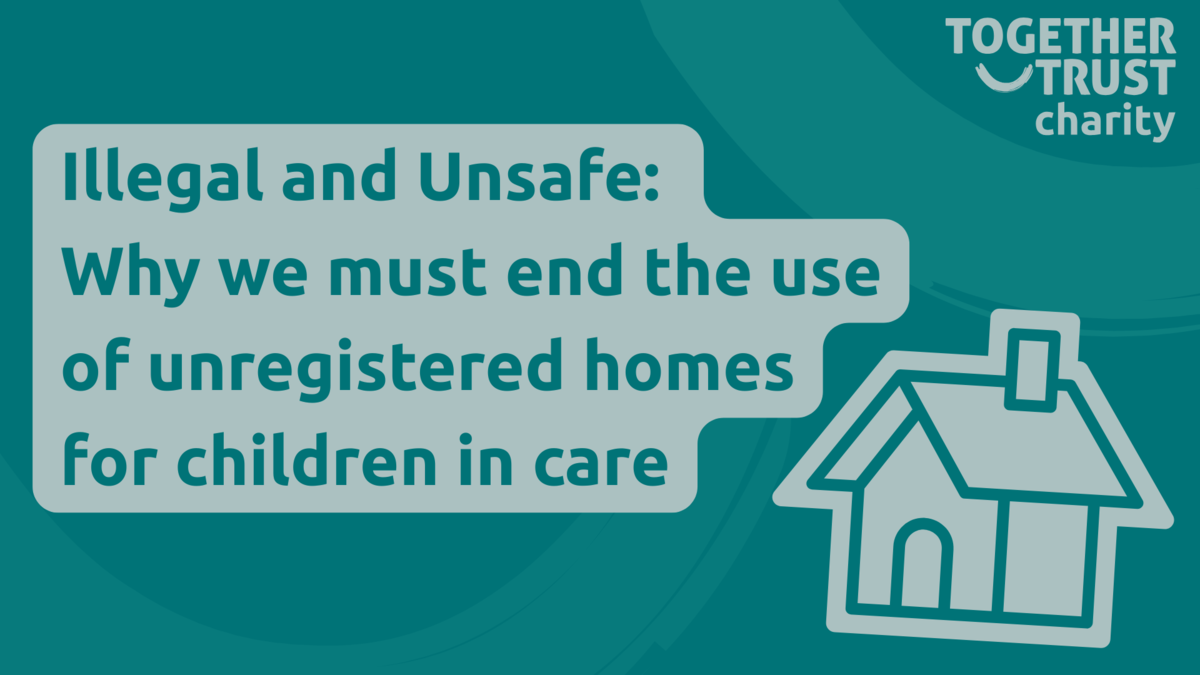
At Together Trust, we are campaigning to end the use of unregistered, illegal settings for children in care. Every child deserves a safe, stable and regulated home. Yet right now, hundreds of children are being placed in unlawful, unregistered homes that operate with no formal oversight, no accountability, and no guarantee of safety or quality.
What are Unregistered Homes?
Unregistered homes are settings that offer care and accommodation to children without being registered with Ofsted, which is illegal under the Care Standards Act 2000. Simply put, any placement that provides 'care' to children must be registered by law.
Some providers attempt to avoid registration by claiming that they are simply offering 'support' rather than 'care'. This distinction allows settings to operate unofficially and unsafely. But in reality, many of the children placed in these homes often have complex needs and require round-the-clock care.
Our most vulnerable children are living without independent oversight, risking their safety, wellbeing, and development. Children as young as 12 are often subject to Deprivation of Liberty orders, with round-the-clock supervision by agency staff and minimal therapeutic care. Cuts to local services, delays in mental health and disability support, plus the pandemic and cost-of-living crisis have all increased needs.
The scale of the problem
Our 2023 investigation with The Observer found that over 700 children in England were living in unregistered accommodation between 2020 and 2024, with two-thirds being under 16. Between 2020 and 2023, these illegal settings surged by 277%. Despite being unlawful under the Care Standards Act 2000, one in five councils have resorted to using unregistered placements amid capacity shortages.
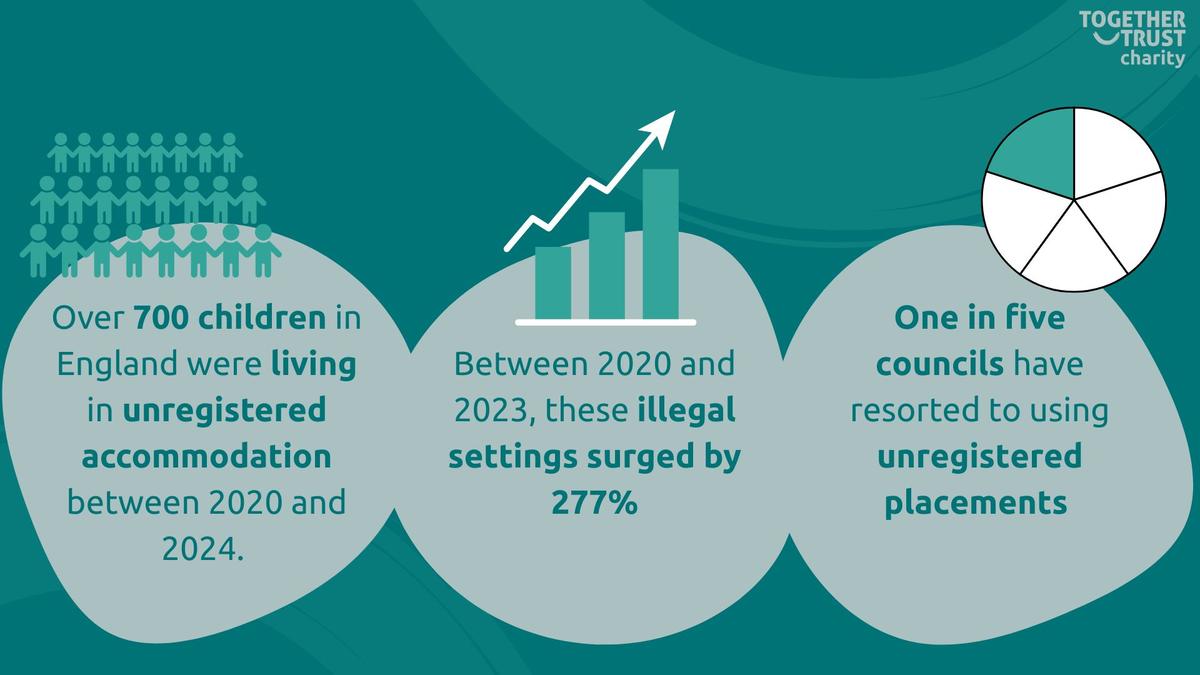
The cost of inaction
Aside from being a safeguarding crisis, this issue is placing immense financial pressure on local authorities. In 2023 alone, councils paid nearly £105 million to private providers of unregistered homes, averaging £150,000 per child, with no legal requirement for these providers to deliver high-quality or even safe care.
This situation reflects a wider failure of sufficiency planning and national leadership. A lack of investment in suitable, regulated provisions is forcing councils to rely on emergency placements, which pose a risk to the safety and wellbeing of children.
What is the Government doing, and why is it not enough?
The Children's Wellbeing and Schools Bill proposes new powers for Ofsted to fine providers operating unregistered children's homes. This is a step in the right direction, but it is not far enough.
Introducing financial penalties for unregistered settings does not address the systemic failures that allow these settings to exist. Nor does it ensure that children in care will have access to regulated, safe homes that meet their needs.
What we are calling for
We are urging the Government to take meaningful action by:
-
Set out how the Department for Education, Ofsted, and the Ministry of Justice will work together to end the use of unregistered settings;
-
Publish a national sufficiency and workforce plan to increase the availability of regulated, therapeutic care;
-
Guarantee regulated care for all children in care up to at least the age of 18, in line with the recommendations of the Independent Review of Children's Social Care.
Every child in care deserves to feel safe, supported and heard. Together, we strive for a future where all children in care have the safety, support, and opportunities to thrive.
Take action today
Add your voice to the campaign. Email your MP and urge them to support a full ban on unregistered placements and push for urgent reform.
Together, we can stand up for children in care and demand the safe, regulated homes they deserve.

